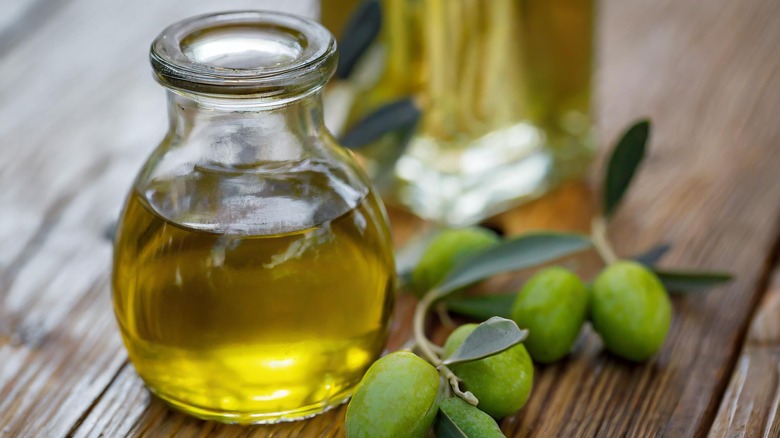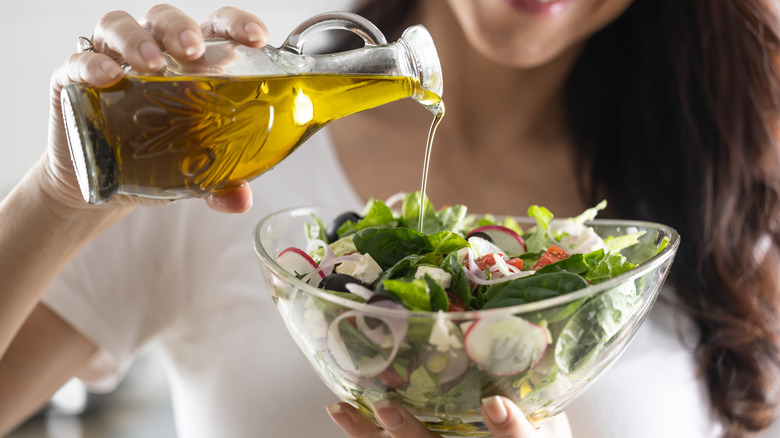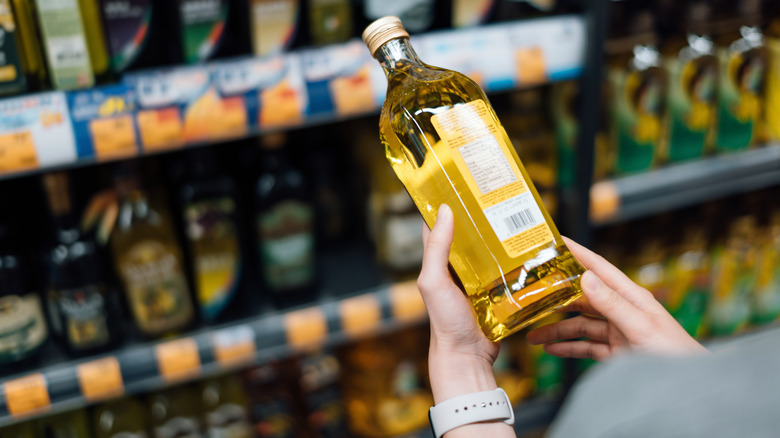The Telltale Signs That Your Olive Oil Has Gone Bad
Olive oil is one of those ubiquitous kitchen staples, with the extra virgin variety considered the very best for cooking and for drizzling on salads. Since Spain isn't going to let up on their production of the stuff, we likely won't experience a shortage any time soon, which is great because olive oil's shelf life — or rather, the window in which it tastes its best — doesn't last forever. But, you might be wondering how you can even tell when olive oil is past its peak.
There are two major signs that your olive oil is taking a downward turn: It will smell different and it will look different compared to when it was fresh. Good olive oil has a light, fragrant scent that may remind you of fresh herbs or a just-mowed lawn in summer. However, if it is starting to turn or has already gone bad, olive oil may have a sour odor or smell musty. Olive oil should also be a translucent yellow-green, but if it appears murky or has started to darken from its lighter hue, this means it might be on the way out.
Here's how long olive oil should last
Unlike its dressing counterpart, red wine vinegar, which lasts nearly forever, olive oil actually has a relatively short lifespan, only staying fresh for up to six months once the bottle has been opened. Olive oil left unopened will last for around two years from the date of purchase. Extra-virgin and virgin olive oil will also spoil faster than more processed varieties.
It's important to note that "spoil" doesn't mean the same thing with olive oil as it does with, say, raw meat. Whereas meat that has gone bad should always be thrown out and can make you sick if you consume it, olive oil that is past its prime is still safe to ingest. It just won't look, smell, or taste as good as it did when fresh. So, don't worry if you use it to cook with only to find out upon tasting that it was a little past it's best.
Storage tips to maximize olive oil's shelf life
When it comes to storage options, you are probably okay leaving your olive oil in the glass bottle or container that it came in. However, if you buy olive oil in plastic bottles, you might be better off moving it to a UV-filtering glass dispenser. This stops the olive oil from sustaining sun and light damage and prevents plastic particles from leeching into the product if the bottle gets warm. You'll also want the container to be as airtight as possible to stop too much oxygen exposure, as this can degrade the quality of your olive oil.
It's best to store olive oil in a dark location, as well as away from heat sources, like your stove or refrigerator. A cool pantry shelf in an area that gets no hotter than 72 degrees Fahrenheit is ideal. Olive oil also shouldn't be stored at temperatures below 60 degrees Fahrenheit, so your refrigerator is much too cold.


